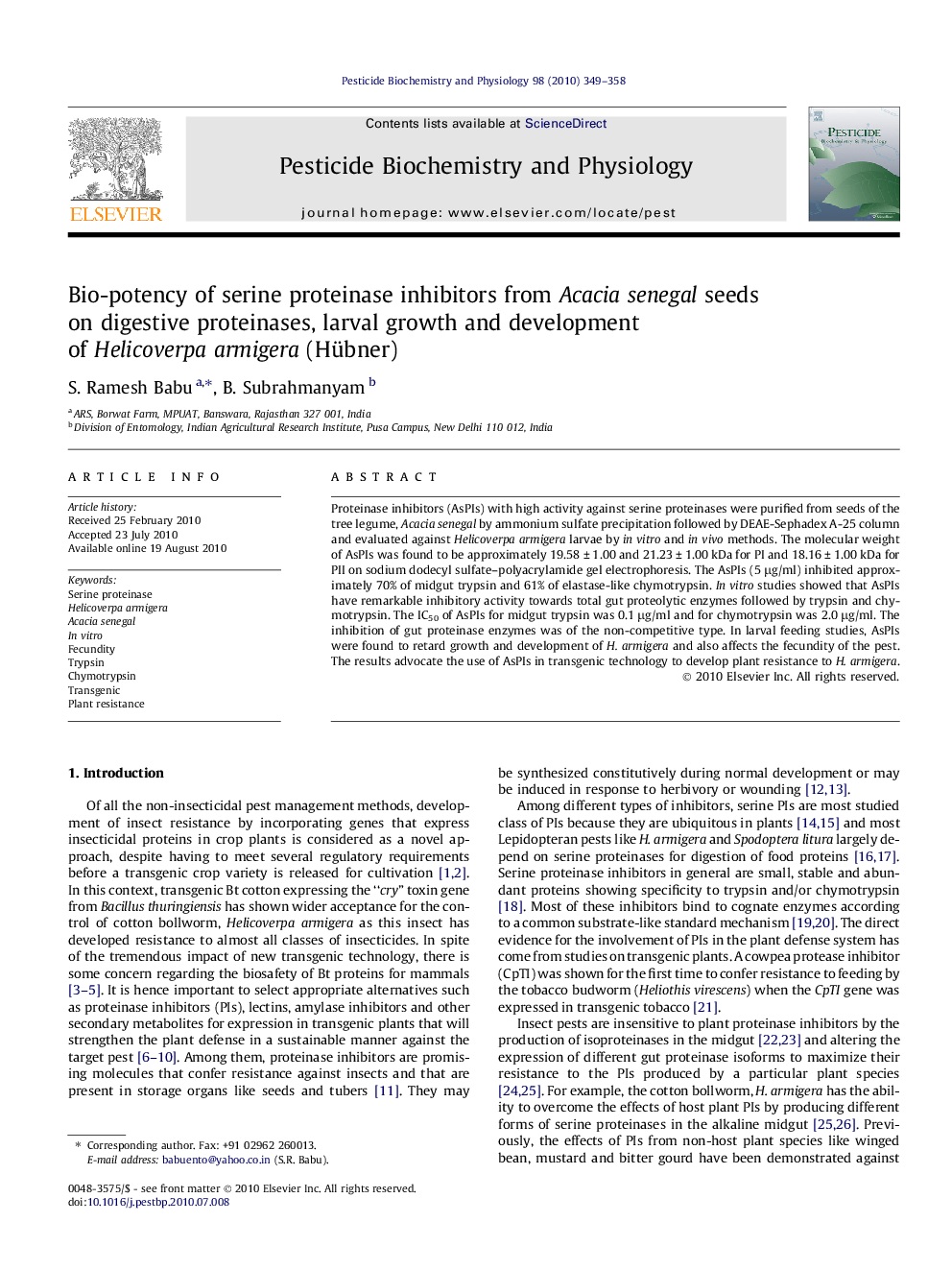| Article ID | Journal | Published Year | Pages | File Type |
|---|---|---|---|---|
| 2010015 | Pesticide Biochemistry and Physiology | 2010 | 10 Pages |
Proteinase inhibitors (AsPIs) with high activity against serine proteinases were purified from seeds of the tree legume, Acacia senegal by ammonium sulfate precipitation followed by DEAE-Sephadex A-25 column and evaluated against Helicoverpa armigera larvae by in vitro and in vivo methods. The molecular weight of AsPIs was found to be approximately 19.58 ± 1.00 and 21.23 ± 1.00 kDa for PI and 18.16 ± 1.00 kDa for PII on sodium dodecyl sulfate–polyacrylamide gel electrophoresis. The AsPIs (5 μg/ml) inhibited approximately 70% of midgut trypsin and 61% of elastase-like chymotrypsin. In vitro studies showed that AsPIs have remarkable inhibitory activity towards total gut proteolytic enzymes followed by trypsin and chymotrypsin. The IC50 of AsPIs for midgut trypsin was 0.1 μg/ml and for chymotrypsin was 2.0 μg/ml. The inhibition of gut proteinase enzymes was of the non-competitive type. In larval feeding studies, AsPIs were found to retard growth and development of H. armigera and also affects the fecundity of the pest. The results advocate the use of AsPIs in transgenic technology to develop plant resistance to H. armigera.
Research highlights► Acacia senegal proteinase inhibitors (AsPIs) consistent with the molecular mass of proteinase inhibitors from Acacia species investigated. ► AsPIs stable in the pH range (2.0–10.0) and its inhibitory activity was stable below 60 °C. ► AsPIs remarkable inhibitory activity towards total gut proteolytic enzymes followed by trypsin and chymotrypsin. ► AsPIs found to retard growth and development of Helicoverpa armigera and also affects the fecundity.
